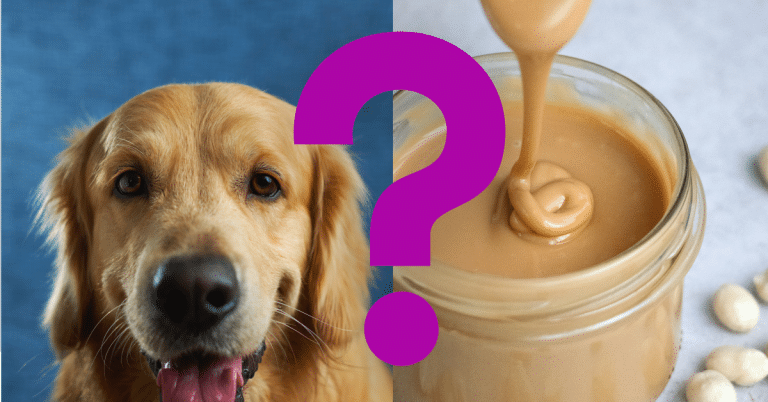Can Dogs Eat Tomatoes? A Vet’s Opinion

While dogs can eat tomatoes in moderation, it’s essential to be aware of potential risks and feed them with caution. But can you feed tomatoes to your dog?
Sure, in moderation, dogs can eat tomatoes. Because of their high vitamin and nutritional content, tomatoes may help with better hydration, cancer prevention, and dental health. But, they can also include dangers, including gastrointestinal distress, solanine poisoning, and allergic responses, so you should watch your dog closely and give them treats sparingly.
Benefits of Tomatoes for Dogs

Let’s start by examining the potential advantages:
- Tomatoes are a good provider of several necessary nutrients for dogs, as was previously discussed. Vitamin C is necessary for properly operating the immune system, while vitamin A supports healthy skin and fur. Potassium aids in controlling blood pressure and hydration levels, and vitamin K are necessary for healthy blood coagulation. Fiber is crucial for keeping the digestive system in good shape.
- Tomatoes have antioxidant qualities, which are compounds that aid in preventing cell deterioration brought on by dangerous chemicals known as free radicals. Dogs can benefit from antioxidants in various ways, including supporting a robust immune system and preventing some cancers.
- Tomatoes may offer anti-inflammatory properties, which may be advantageous for dogs suffering from arthritis, skin allergies, and digestive problems.
- Tomatoes have few calories; they can be a healthy supplement to a dog’s diet without adding many extra calories. This can be highly beneficial for dogs that need to lose or keep their weight in a healthy range.
- Tomatoes are primarily made up of water, so giving them to your dog can help keep them hydrated. This is particularly advantageous in hot weather or if your dog is prone to dehydration.
- According to specific research, antioxidants found in tomatoes may lower the chance of developing some cancers in dogs, including lymphoma and mammary cancer.
- Chewing on raw tomatoes can help keep your dog’s teeth clean and in good condition. Their risk of dental issues can be decreased by using tomato skin because of its ability to assist people in eliminating tartar and plaque from their teeth.
- Lycopene, a vitamin connected to better eye health in dogs, is abundant in tomatoes. Lycopene may aid in the prevention of cataracts and
- Tomatoes are a low-calorie food that might be an intelligent choice for dogs trying to shed pounds or keep their weight in check. As a reward, giving your dog tomatoes rather than higher-calorie foods might make them feel fuller without making its diet heavier.
While giving tomatoes to dogs may have certain advantages, it’s crucial to remember that they should always be provided sparingly and carefully. As previously stated, it’s always a good idea to speak with your doctor before making any dietary changes for your dog and to watch for any unfavorable responses after giving them tomatoes or any other new food.
How to Safely Give Tomatoes to Dogs?
There are specific steps you can take to assist assure your dog’s safety if you choose to feed them tomatoes:
- If your dog has never had tomatoes, start with a tiny amount to ensure no negative responses.
- As previously indicated, the tomato plant’s leaves and stems may contain solanine, which can poison dogs. When giving your dog any tomatoes, remove any leaves and stems.
- Just feed ripe tomatoes. It is advised to avoid giving your dog unripe, green tomatoes as they have greater solanine concentrations than ripe tomatoes. Any tomatoes you give your dog should be completely ripe and bright red.
- Don’t overfeed: Tomatoes can be a nutritious addition to your dog’s diet, but you should only give them to him occasionally. Any food in excess might upset the stomach or lead to other health problems. It’s always a good idea to speak with your veterinarian for precise advice because the number of tomatoes your dog may consume safely will vary depending on their size, breed, and general health.
- Think about other formats: There are safer alternatives if you’re worried about the hazards of giving your dog raw tomatoes. For instance, tomatoes that have been cooked or are in a can have a lower solanine content and may be simpler for your dog to digest.
- If your dog consumes tomatoes, be on the lookout for any symptoms of an unpleasant response, such as vomiting, diarrhea, or indications of an allergic reaction. If you see any of these signs, stop giving your dog tomatoes, and speak with your physician for more advice.
- So, even if it’s legal to give your dog tomatoes, it’s crucial to be aware of the hazards and take precautions to reduce them. Before making any dietary modifications for your dog, like with any food, it’s wise to speak with your vet.
Will Tomatoes Make a Dog Sick?

Giving tomatoes to dogs may come with some possible hazards. The tomato plant’s leaves and stems contain a chemical called solanine, which can be hazardous to dogs in big doses. It’s still a good idea to avoid giving your dog tomato leaves and stems, even though it would take a substantial amount of solanine to do significant injury. It is advised to avoid giving your dog unripe, green tomatoes as they have greater solanine concentrations than ripe tomatoes. Any tomatoes you give your dog should be completely ripe and bright red.
Some dogs, especially those that overeat or have sensitive stomachs, may have digestive distress after consuming tomatoes. Vomiting, diarrhea, and gas are possible symptoms of stomach disturbance. Therefore, while giving tomatoes to dogs may have certain advantages, proceeding carefully and moderately is crucial. Ensure sure any tomatoes you give your dog are fully ripe and refrain from giving them tomato plant leaves and stems. Before making any dietary changes for your dog, it’s always a good idea to have a vet check them out if they have any underlying health concerns.
Vet’s Summary
In conclusion, tomatoes may be a nutritious addition to your dog’s diet if offered sparingly and carefully. They include many vitamins A and C, fiber, and antioxidants and may help you stay hydrated, avoid cancer, maintain good oral and eye health, and lose weight. Tomatoes can cause stomach discomfort, gastrointestinal obstructions, solanine poisoning, and allergic responses. But feeding tomatoes to your dog also has specific hazards.
Probiotics are a possible treatment option if your dog does develop digestive problems after eating tomatoes or any other meal. The mix of good bacteria in your dog’s intestines may become out of whack due to stress, antibiotic use, or food changes. Probiotics are helpful microorganisms that may help restore this balance. Diarrhea, vomiting, flatulence, or a general reduction in health or vitality are indications that your dog can benefit from probiotics. Dog probiotics come in various forms, so it’s a good idea to speak with your veterinarian to determine which is best for your dog’s requirements.
Videos To Watch
Watch this video if you want to find out if dogs can eat tomatoes:
Watch this video to find out if cherry tomatoes are good for your dog:






